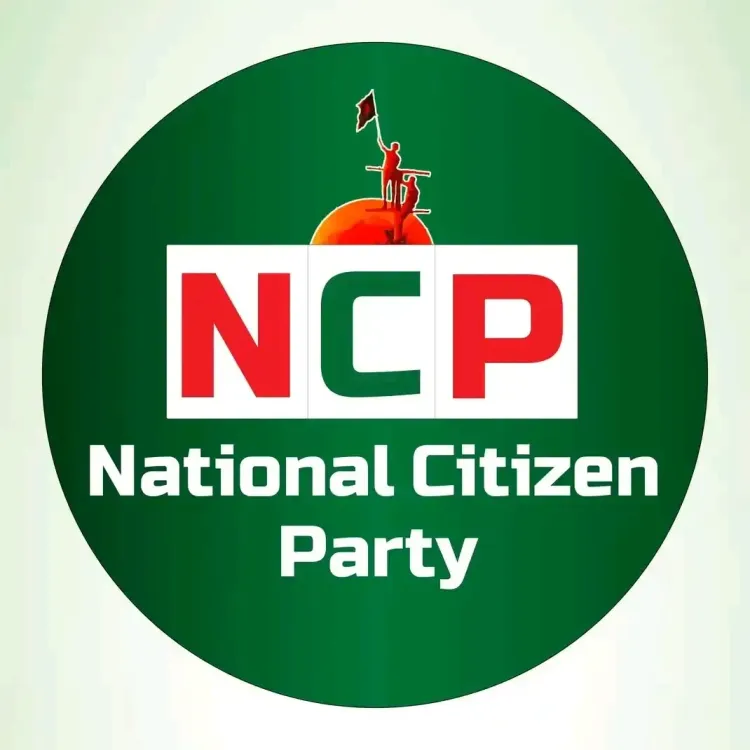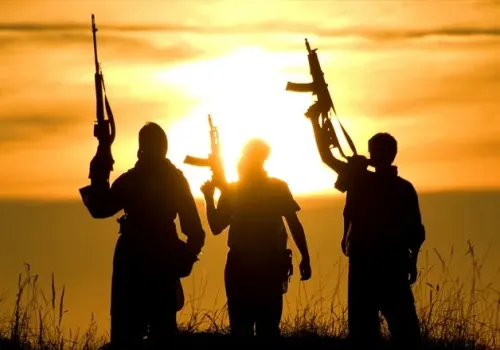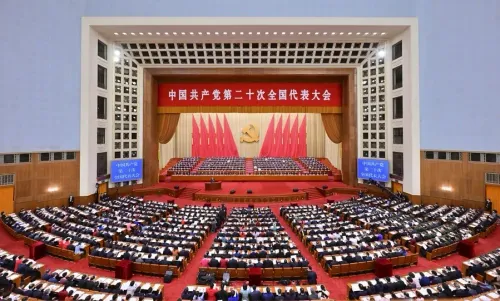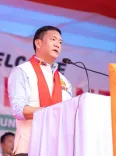Is the BNP and Jamaat Fueling Uncertainty Over Bangladesh's February 2026 Election?

Synopsis
Key Takeaways
- The NCP criticizes the BNP and Jamaat for causing unrest.
- Discussions over the July charter are deemed irrelevant by the NCP.
- Political instability is growing as elections approach.
- Calls for solutions to unresolved charter recommendations.
- The referendum's implications are a point of contention.
Dhaka, Oct 31 (NationPress) Amid escalating political turmoil in Bangladesh as next year’s elections approach, the National Citizen Party (NCP) has expressed strong criticism towards both the Bangladesh Nationalist Party (BNP) and the radical Islamist group Jamaat-e-Islami. They accused these parties of engaging in “irrelevant debates” concerning the July charter's implementation, which they assert has disrupted the electoral process and fostered uncertainty regarding the February 2026 elections, as reported by local media.
According to Nasiruddin Patwary, the chief coordinator of NCP, “The ongoing debate about whether the referendum will occur before or after the elections is trivial. We [NCP] refuse to partake in this discussion,” as stated in a leading Bangladeshi newspaper during a recent event held in Dhaka.
Furthermore, at a seminar hosted by NCP's youth faction, Jatiyo Juboshokti, Patwary remarked, “We have yet to resolve the recommendations outlined in the July Charter. Solutions to the proposals remain elusive, just as clarity on the orders remains unachieved.”
He criticized Jamaat for persistently emphasizing the referendum issue, questioning their motives: “Is the push for a pre-election referendum merely to secure more seats, or is there an ulterior motive?”
Patwary stressed that should the referendum yield a “yes” outcome, it would signify a triumph for the citizens of Bangladesh rather than Jamaat. “Thus, we urge Jamaat-e-Islami to cease the facade,” he added.
He accused both Jamaat and BNP of complicating the national crisis, with Jamaat seeking proportional representation in the lower house, while BNP has raised dissent over the July charter.
“Jamaat must not incite public panic regarding the referendum. Our focus should be on resolving dissent issues and issuing appropriate orders,” he emphasized.
Moreover, Patwary characterized the BNP's 'note of dissent' submitted through the Bangladesh National Consensus Commission as a “note of deception”.
As political tensions surrounding the July Charter grow, BNP has recently accused the NCC of “deceiving” the populace and political entities with its final recommendations, demanding immediate amendments to incorporate dissenting opinions.
Conversely, Jamaat has insisted that the referendum on the constitutional reforms proposed in the July charter be conducted prior to the elections, even if it necessitates delaying the vote.
These events transpired following the NCC’s recommendations presented to Chief Advisor of the interim government, Muhammad Yunus, regarding the July Charter's implementation.
Bangladesh continues to grapple with increasing political instability and uncertainty as next year's elections draw near.
The factions that once allied with Yunus to depose the democratically-elected Awami League government, led by Sheikh Hasina, now find themselves in conflict over reform proposals.









